
- Self-examination
The importance of early detection and self-examination
Written by: Editors
Modified on:
With millions of new diagnoses each year, cancer is still one of the leading causes of death worldwide. Early detection and self-examination can be crucial for increasing survival rates and improving treatment outcomes. Statistics on cancer incidence and survival emphasise the need for early detection. For example, five-year survival rates vary widely depending on the stage of the cancer at the time of diagnosis, with early detection offering significantly higher survival rates than advanced stages.
Even if you know that self-examination can save lives, it can still be difficult to keep examining yourself consistently. Here are some tips to stay motivated.
- Set a reminder in your smartphone or mark your calendar to do a self-exam.
- Involve your partner or a family member to support you and hold you accountable.
- Reward yourself after each self-check to reinforce positive behaviour.
By making early detection and self-exams an essential part of your health routine, you can take an active role in your own well-being and make your future a healthier one.
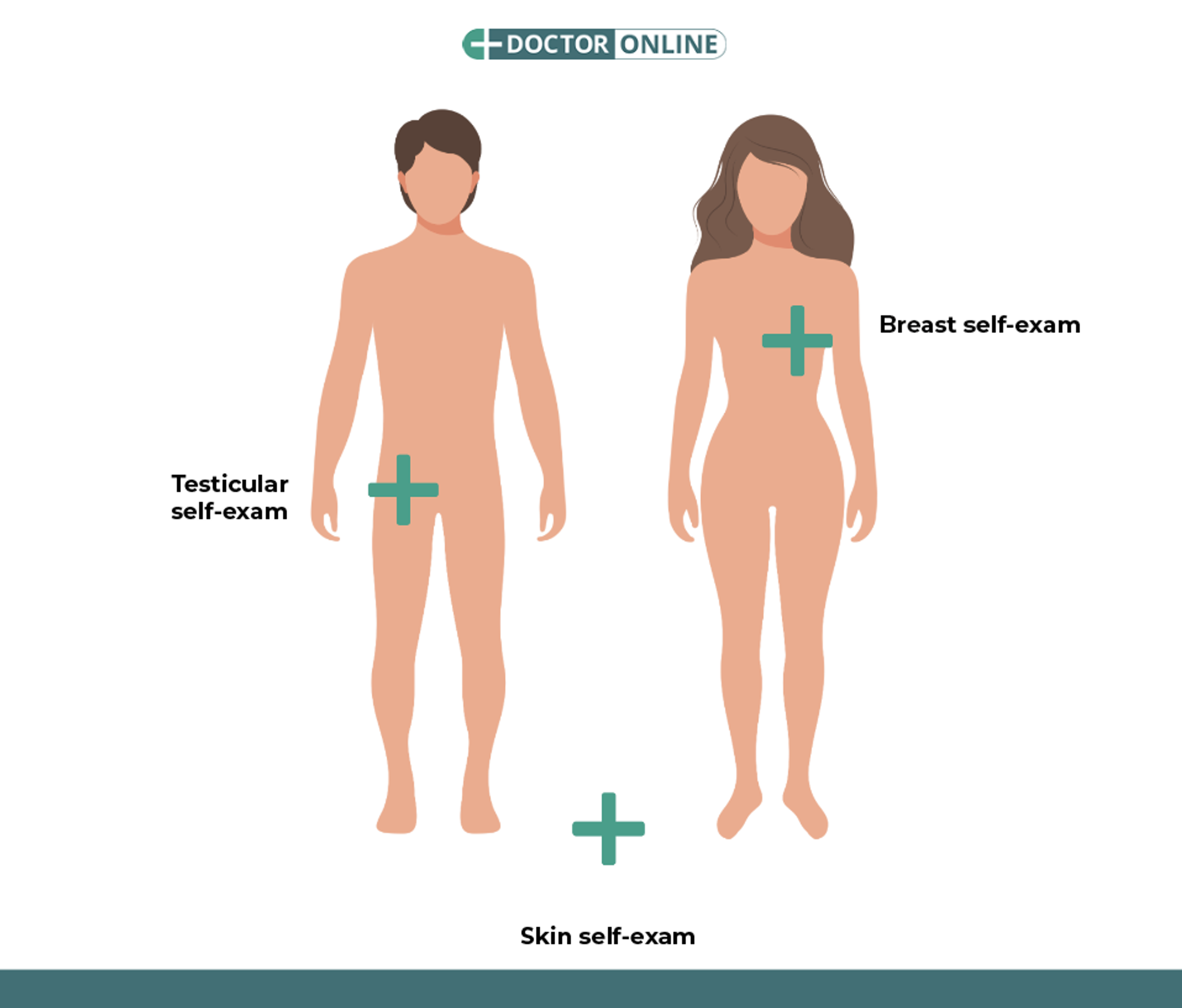
Cancer screenings
Screenings, such as breast cancer mammograms, pap smears for cervical cancer, colonoscopies for colon cancer, and PSA tests for prostate cancer, are an essential part of cancer prevention. These screenings are done before you have any symptoms. The timing of the tests is based on your age, gender and risk factors. In addition to this, it’s important to do self-exams at home and be aware of available cancer screening programms.
Hereditary predispositions to cancer
Family history is an important cancer risk assessment tool. Telling your doctor about your family health history is the first step to find out if you may have a higher cancer risk. Genetic testing of family members can help detect tumours at an early stage, which may help your prognosis. Your GP plays an important role in this respect.
Be familiar with your body and be alert of any changes
Self-examination is an easy method to detect cancer early. Regular breast exams help women become familiar with their breasts so that any changes are spotted in a timely manner. The same applies to testicular and skin cancer: testicular self-exams and skin self-exams can help find cancer early.
Advice
Understanding your body is vital for your health. Be alert to changes in your body. Examine yourself regularly and discuss any changes with a doctor. The earlier breast cancer is detected, the better the chance for successful treatment.
Check for early signs of breast cancer by doing a self-exam
When breast cancer is detected and treated early, the chances of survival are higher and treatment will be less invasive. Fortunately, breast exams are easy to do yourself and can be done at home.
How do you do a breast self-exam? Women from the age of 20 onwards are recommended to do self-exams, preferably once a month. The best time to check your breasts is one week after your period. Your breasts are less swollen or lumpy at that time, so you're less likely to miss any abnormal changes.
- Take the time to look at your breasts in the mirror to see if you notice something unusual.
- It’s also very important to feel for changes in the breast.
- Lay down and put your left arm behind your head. Place your right hand on the upper portion of your left breast.
- Keeping fingers flat and together, use a circular motion to feel your breast from the side to side. Make sure to feel the upper outer areas that extend into your armpit and collarbone.
- Check for any hard or thick lumps, or other unusual features.
- Repeat these steps for your right breast.
- If you are concerned about any changes you experience, contact your GP immediately.
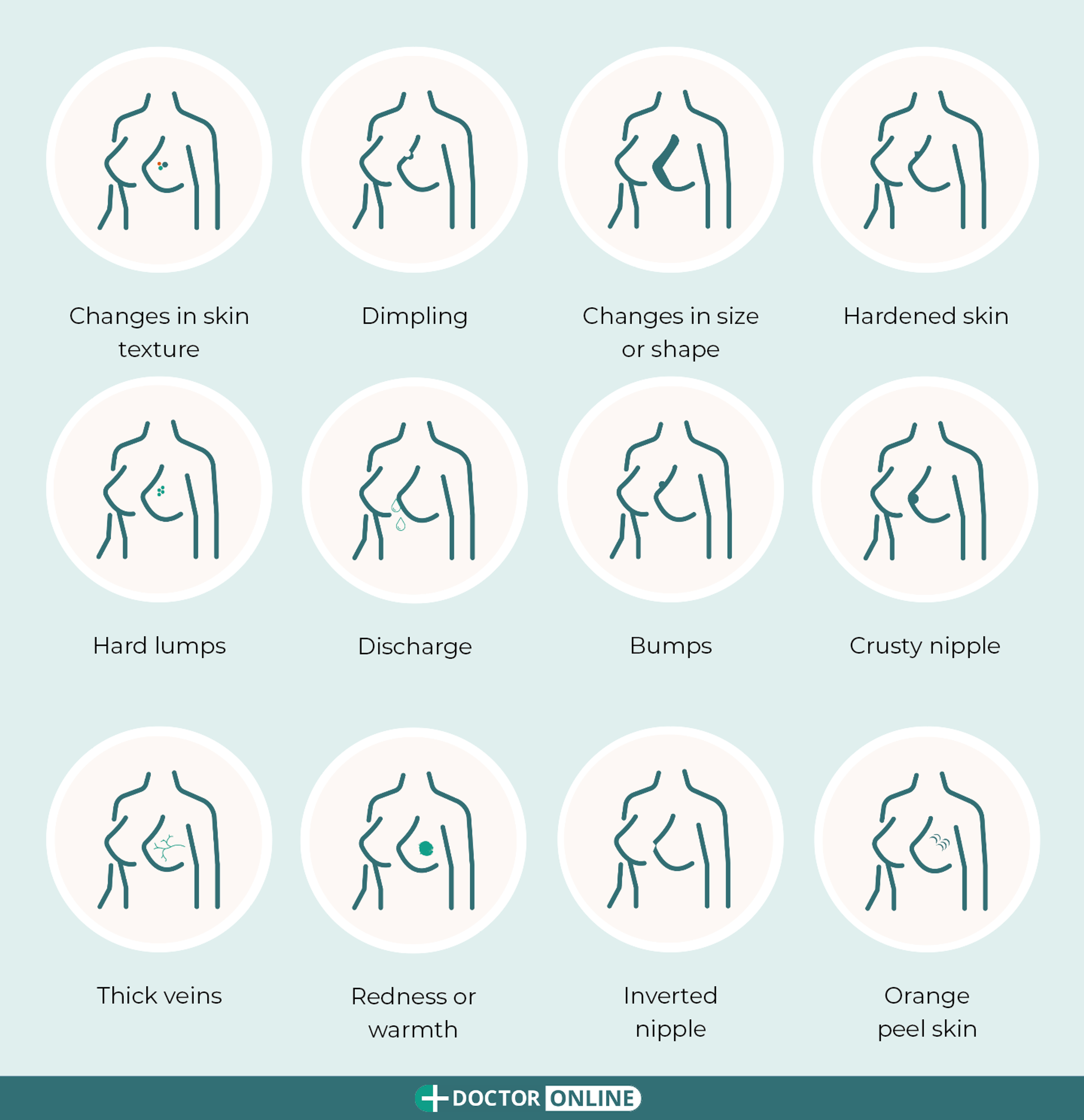
Why is this important? Doing regular breast self-exams helps you learn the appearance of your breast and how they feel. This way, you are more likely to notice any subtle changes. When in doubt, you should always check with your doctor.
Check for early signs of testicular cancer by doing a self-exam
Testicular cancer is the most common cancer type in young men between the ages of 15 and 35. Regular self-examination allows you to spot any changes early.
How do you do a testicular self-exam? Do the exam while you're in the shower. A warm shower will relax the scrotum, making an exam easier.
- Starting with one side, gently roll the scrotum with between your thumb and index finger.
- Check for any lumps, bumps or unusual features.
- Repeat these steps for the other scrotum.
- If you are concerned about any changes you experience, contact your GP immediately.
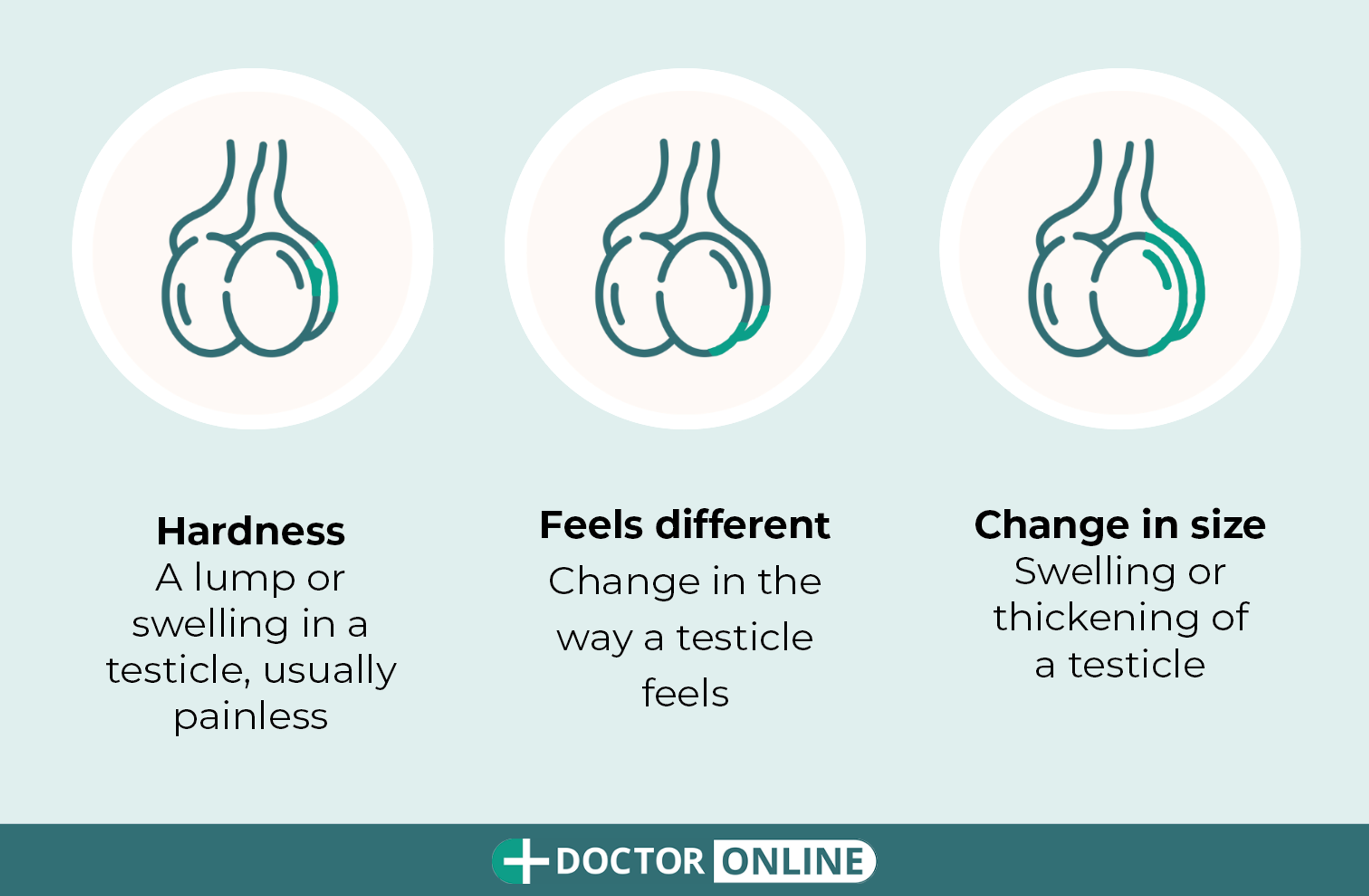
Why is this important? Doing regular testicular self-exams helps you learn the appearance of your testicles and how they feel. This way, you are more likely to notice any subtle changes. The earlier testicular cancer is detected, the better the chance for successful treatment.
For more information, see this article: The most frequently asked questions about prostate problems
Check for early signs of skin cancer by doing a self-exam
It is very important to be familiar with your body and to be alert of any changes. This applies especially to people from the age of 18 onwards.
How do you do a skin self-exam?
- A skin self-exam is best done in a well-lit room in front of a mirror.
- Look at every part of your body, in particular areas that have been exposed to the sun.
- Spend time carefully going over the entire surface, starting from your face, working your way down.
- Look for any changes in moles, such as rough patches or any changes in colour.
- You can use a hand-held mirror to look at areas that are hard to see. Your partner or a family member may be able to help you with these exams, especially for those hard-to-see areas.
- Learn the pattern of moles, blemishes, freckles and other marks on your skin so that next time you’ll notice any changes or areas that won’t heal, itch or bleed.
- Notice something you're concerned about? Then contact your GP immediately.
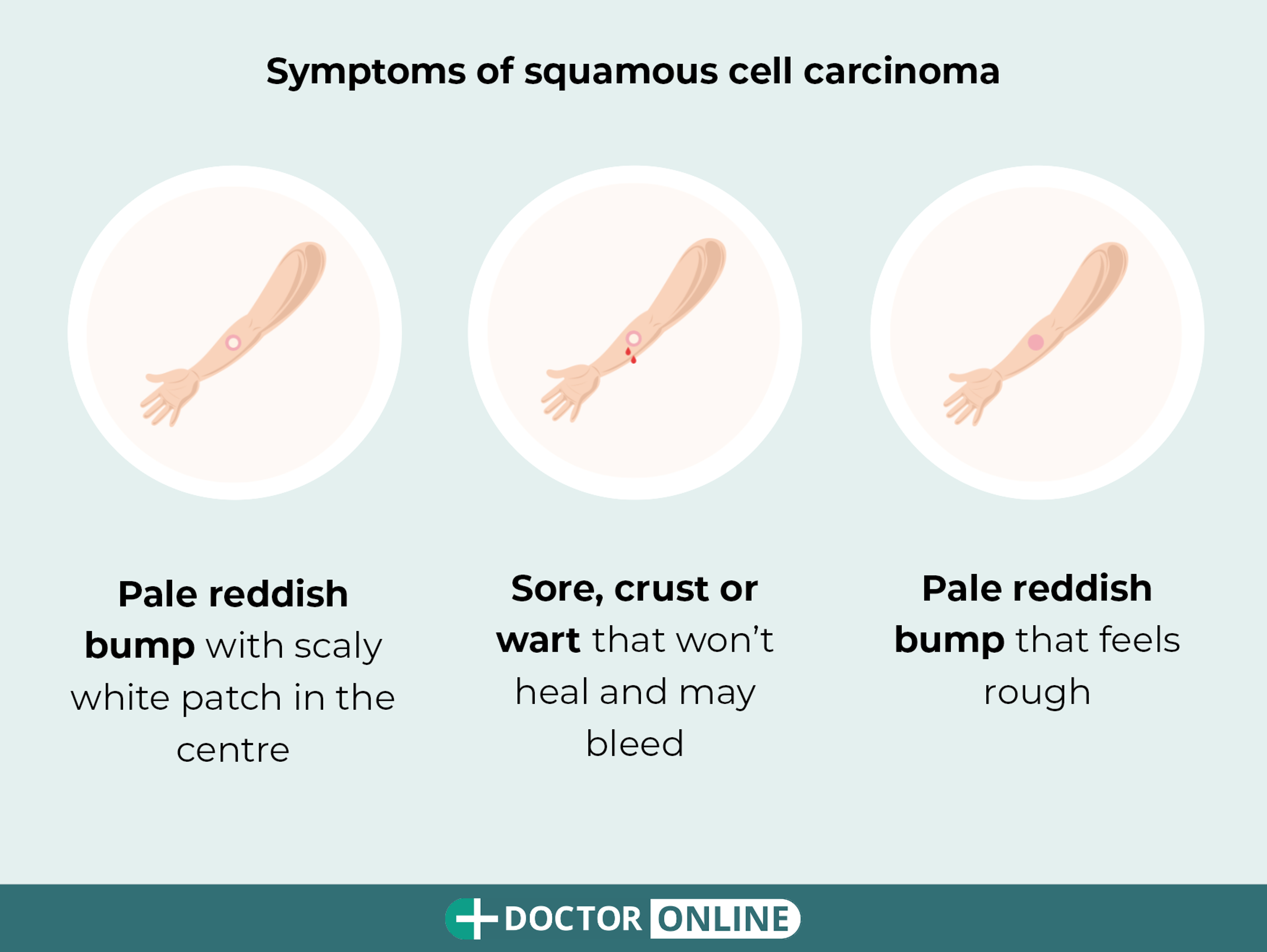
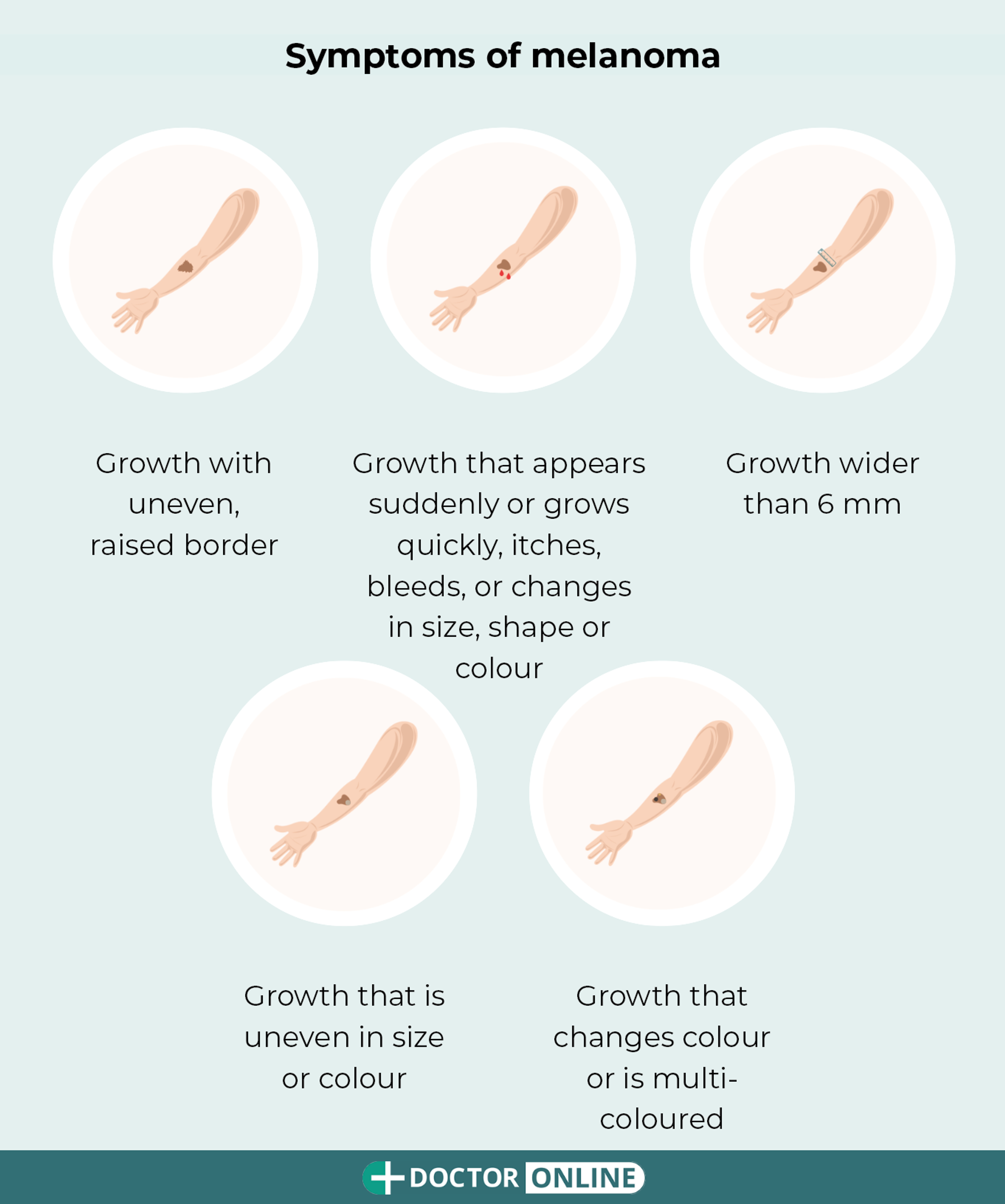
Why is this important? Doing regular skin self-exams helps you learn the appearance of your skin, so you’ll notice any changes in a timely manner. When in doubt, you should always contact your GP for advice.
Remember, regular self-exams can save your life. Talk to your GP if you see any areas that concern you. Let’s work towards a healthy future together.